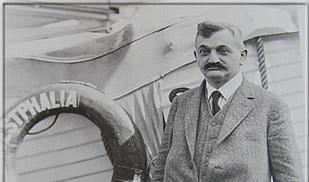
Lasker In 1928. Some Bits And Pieces.
Afternoon everyone, with apologies for my absence of late - real life issues to deal with.
I managed to make some time this week to get my head in a book - this one -

As you know, I am not really into the biography side of chess players, but Lasker - that most fascinating of personalities - is an exception. The book has an outstanding biography, on a year by year basis, by the wonderful Richard Forster. By 1928 Lasker had ostensibly retired from chess, only to come back 5 years later. After all, this was the year of his 60th birthday!
Some quick bits and pieces from that year.
Early in the year he was invited to take part in the Berlin Tournament, ( indeed, the start was delayed by the organisers in case he decided to take part) but he declined saying that 'urgent business matters' prevented him from playing. He did, however, attend the event, and we get a nice picture of him congratulating the winner.

The urgent business was his literary output. He published a series of essays 'Kultur in Gefahr' ( Culture in Peril) which included some controversial views on physics. Lasker was opposed to the new ideas on quantum physics and relativity theory. They did not fit his sense of 'logic'.
As his interest in chess waned, his interest in card games increased. His chess journalism for the Dutch newspaper De Telegraaf ended, and he started writing on Bridge. He also wrote a book 'The Intelligent Card Game', which Forster believes was completed early in 1928.
Apart from his birthday there was a second event of great importance in his life - the death of his dear Brother and mentor Berthold, on Oct. 19th.
A now famous picture of the two, which has caused some confusion as to source, date, etc.

I think the original was the property of Edward Lasker, who states that it was taken in Munich in 1908, and won a prize there at an exhibition of photographic art.
Forster quotes from a Lasker letter to his wife on the subject of his brother's death.
" I am very sad that Berthold has been taken from us. He could still have experienced so much good and could have meant and given so much to us and others. A pointless accident...
Mieses and seven of the participants in the Berlin Tournament ( all except Capablanca ) have cabled their condolences.
Lasker's 60th birthday was in December. He received over 200 letters, cards an cables of congratulation - later collected together by his wife Martha.

and put together in a scrapbook to commemorate the occasion.
The only chess activities that we know of in that year were three simultaneous exhibitions in the USA late in the year. Fortunately the most interesting of them was covered by the wonderful Herman Helms in his Brooklyn Daily Eagle column, and included 8 of the ten games.
Clock simultaneous exhibitions are a unique experience! I have given a couple myself, and first time round it was rather confusing!! You can have all the clocks running against you at once and not know which game to focus on first. The advantage is that you can spend as long as you want on a difficult position, but that means your brain loses the images of the other games. 10 games at 20 moves per hour, against strong players as well, was a tough challenge - especially for a man out of practice and approaching his 60th birthday.




Nowadays the games can easily be found online, and I will give three of them.
Firstly a win against a player who was still active when I was growing up. back then he was just 17 years old, and looked like this :_

Just time to throw in two more of the games with no notes - enjoy them for yourselves! Harry Klein seems to have been a fascinating individual. Chess wise he is famous for two losses in the same tournament - one against Capablanca that is in Chernev's book on that player, as well as 'My System', as I recall - and a miniature against Frank Marshall to be found in various sources.
And one against an opponent who I know nothing about!!

Well worth studying for yourself. Under the circumstances Lasker handled the complications really well.
That's all I have time for today - hopefully you enjoyed this little bit of historical trivia. With a big thank you to Forster et al for a wonderful book, and helms for his magnificent chess columns. Take care 'til next time my friends.

And, because I have it to hand, a rare early picture of Lasker - just because I can and I really like it!
